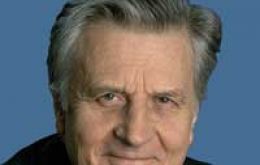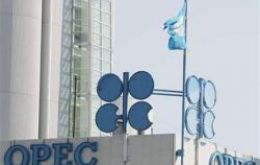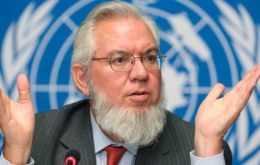MercoPress. South Atlantic News Agency
International
-
Sunday, May 31st 2009 - 15:17 UTC
WHO: Tobacco packages must use pictorial warnings

For another year in a row the World Health Organization (WHO) declares May 31 for a world no-smoking day. It draws global attention to the widespread prevalence of tobacco use and to its negative health effects. Every year the WHO joins all the people worldwide around a topic towards reducing tobacco consumption. This year’s subject is: health warning messages on the packaging of cigarettes and other tobacco products.
-
Sunday, May 31st 2009 - 00:21 UTC
Big Ben rings in its 150th anniversary on Sunday

Defiantly low-tech yet accurate to the second, Big Ben is having its 150th birthday Sunday, its Victorian chimes carrying the sound of Britain into the 21st century.
-
Saturday, May 30th 2009 - 16:15 UTC
World: Climate change 'killing thousands'

Climate change is killing about 315,000 people a year through hunger, sickness and weather disasters, according to a new report. The report, commissioned by the Geneva-based Global Humanitarian Forum (GHF) and released on Friday, said the the annual death toll is expected to rise to half a million by 2030.
-
Saturday, May 30th 2009 - 15:35 UTC
Barcelona-Gibraltar flights delayed by a month

Aerolineas Ándalus will delay the launch of flights between British Overseas Territory Gibraltar and Barcelona, Spain by at least a month because of low demand. The company began selling tickets several weeks ago but few people were buying, reports the Gibraltar Chronicle.
-
Saturday, May 30th 2009 - 15:29 UTC
Euro zone with zero inflation and growing fears of deflation

The Euro zone annual inflation rate in the 16-country region fell to 0% in May from April’s 0.6%, according to Euro-stat. Economists said inflation would turn negative in June, --deflation—further complicating the task of the European Central Bank as it attempts to combat the worst economic downturn for half a century.
-
Friday, May 29th 2009 - 11:38 UTC
Boreal summer and OPEC push oil to new six-month high

Oil surged past 65 US dollars a barrel on Thursday to a fresh six-month high after OPEC decided to keep output unchanged and data showed a steep drop in US crude inventories.
-
Friday, May 29th 2009 - 11:24 UTC
ILO predicts 230 million jobless in 2009; Latam unemployment, 9%

The International Labour Organization (ILO) is predicting global unemployment between 210 million and 239 million people in 2009 which represents a rate of 6.5% to 7.4%. Geneva based ILO made public Thursday its report on “Tackling The Global Jobs Crisis” in advance of the ILO annual conference, which begins June 3.
-
Friday, May 29th 2009 - 11:18 UTC
Next G20 summit will take place in Pittsburgh

United States will host the next G20 summit of world leaders in September, the White House has confirmed. The meeting will take place in Pittsburgh, Pennsylvania, on Thursday 24 September and Friday 25 September.
-
Friday, May 29th 2009 - 02:19 UTC
South Atlantic islands preparing invasive species strategy

A regional strategy for invasive species in the South Atlantic should be ready towards the end of the year, following the conclusion of the regional workshop on Ascension Island.
-
Friday, May 29th 2009 - 01:58 UTC
Gibraltar reviews sea patrol procedures to contain Spanish “incursions”

In the wake of recent tense incidents at sea off Gibraltar with Spain, police and military planners have revisited the operating procedures for marine crews patrolling British waters, reports the Gibraltar Chronicle.
